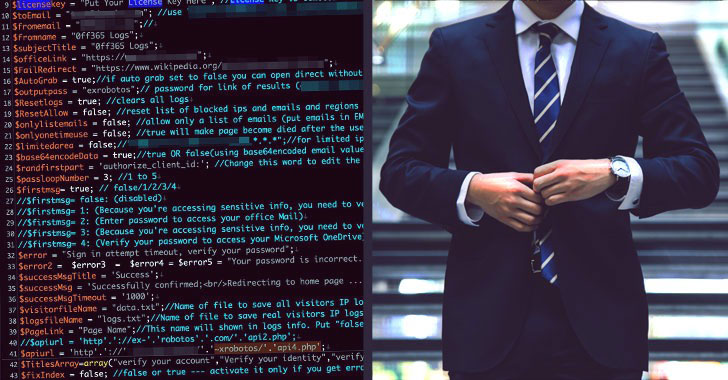The Telegram logo of a paper airplane, shooting messages across the sky. The app, created by Russian … [+]
SOPA Images/LightRocket via Getty Images
Trump’s final days in the White House ended up being a boon for Telegram.
The messaging app creating by Pavel Durov and banned in Russia by its intel service for not giving them encryption keys for a police investigation, has never had it so good.
Durov became a superstar for going against the Russian FSB. Then he became the darling of the crypto communities. And now, following all the censorship that ran amok in Trump’s last days in Washington, has amassed nearly 100 million new users.
People spent the last days of 2020 and the early days of 2021 fleeing the legacy social media platforms due to Big Tech censorship, regardless of what side of the political aisle they were on. From Europe to Brazil, they fled to Signal and Telegram in droves.
Signal recorded around 17.8 million app downloads on Apple
Some of the exodus from Whatsapp was due to new privacy rules, which they recently rescinded.
Pavel Durov. Within crypto at least, his app is celebrated for its privacy rules. A decentralized … [+]
2015 Getty Images
But not all of the flow was due to that. Most people don’t spend more than five seconds going through privacy agreements. They scroll down and hit accept.
In the first week of January, Telegram surpassed 500 million monthly active users with 25 million new users joined Telegram in one three day period after New Year’s Day.
The new users came from across the globe – 38% from Asia, 27% from Europe, 21% from Latin America and 8% from the Middle East, so not just the U.S. But U.S. censorship headlines had a lot to do with it.
This is a significant increase compared to 2020, says Durov, when 1.5 million new users signed up over the average course of a day. “We’ve had surges of downloads before, throughout our 7-year history of protecting user privacy. But this time is different,” he says. “People no longer want to exchange their privacy for free services. They no longer want to be held hostage by tech monopolies that seem to think they can get away with anything as long as their apps have a critical mass of users….We take our responsibilities seriously. We won’t let you down,” he wrote on his Telegram channel last week.
An Exodus?
For some, this is a sign that legacy social media has peaked. Much like traditional media companies have peaked. People may not know it, but a general disgust with social media is helping give the decentralized web aficionados out there something to cheer about.
“This is absolutely a trend as people are starting to distrust traditional Big Tech giants, who are largely in bed with governments,” says Christian Skoglund, CMO at GokuMarket, a decentralized e-commerce platform accepting Bitcoin and operators of a crypto exchange. The purple-monstered start-up is currently backed by angel money, with some of their tech staff coming from Asian fintech firm CipherHut.
“There is a strong demand for private platforms, especially given obvious and concerted efforts by major tech companies to delist the competition and censor users. This has really come to a head with the de-platforming of Trump,” Skoglund says. “Many feel that if it can happen to him and his staff, it can happen to anyone.”
Fueled by censorship and Amazon Web Service shutting down Parler, which made a strange (and probably terrible) decision to go use network servers in Russia instead, the interest in decentralization got a shot in the arm at the start of 2021.
Tech experts tell me that these kinds of censorship moves are media-driven theater because in the new age of a decentralized internet, new applications are surviving and thriving outside of the large corporations like Amazon, Apple and Google anyway.
Some are able to apparently utilize technology that is nearly impossible to regulate or litigate, though this is out of my realm of expertise.
I do know that the infrastructure for a decentralized internet has been built out even more with the growth of blockchain and crypto technologies. Decentralized Autonomous Organizations (or DAO) have been around for at least five years that I am aware of. These censorship-resistant networks are going to thrive this year, especially if the socials continue with their hellscape post-Trump.
Venture Capital firms will be looking at them more closely this year, is my guess.
The MeWe social networking platform is seen on an Apple laptop in this photo illustration in Warsaw, … [+]
NurPhoto via Getty Images
Chat groups have seen their activity dampened on Facebook, YouTube and Twitter by the centralized authorities that govern the content posted on these platforms, says Maxim Nurov, founder of Digital Currency Reserve. For some, it’s too hard to do business on YouTube and they are moving to other platforms like Locals.com, where Tulsi Gabbard (D-HI) recently set up shop and famous cartoonist and YouTuber Scott Adams hung a shingle late last year.
While that is not a decentralized internet story, it is part and parcel to people vacating legacy platforms. If Locals is on AWS, who knows, they may be shut down next if Jeff Bezos disapproves somehow. Big brother is indeed watching, listening and scolding.
“Privacy concerns are going to be the driver,” Nurov says about the reason to keep building decentralized web platforms.
A centralized internet relies on high powered, centrally controlled servers like Amazon’s AWS for instance. A decentralized one is peer-to-peer and unlike the central internet’s server structure, these users and their devices would host the website themselves. So a world of mini-servers.
“Censorship of online activity also becomes a for more difficult endeavor with a dencentralized web,” says Nurov in a Medium post. “Some developers are already creating decentralized web browsers and social media platforms.” His start up was created during the pandemic and is designed to become a decentralized digital store of value (SoV) with a limited supply and a zero inflation rate. It is mostly geared towards the decentralized finance crowd, an offshoot of the decentralized web and in many ways part of the crypto universe.
We’ve Hit Peak Twitter
Twitter stocks have been hammered from the “exodus” and a wide perception of censorship on the … [+]
Yahoo Finance
The “exodus” — if you can call it that — pumps up the cause for a decentralized web. Like the good ole days of cable television when it was advertisement free, the internet and its biggest brands like YouTube have become mere extensions of the major media.
If you don’t like it, where do you go?
One of the earliest and most commonly known forms of what a ‘decentralized internet’ might look like was BitTorrent, a protocol that supports peer-to-peer file sharing to distribute large amounts of data around the world.
Torrent sites were notorious for copyright infringement. Brazilians, I remember, would use it all the time to download new movie releases for free. Some would get video games, all stolen of course.
Another more recent form of the decentralized web is the InterPlanetary File System, a distributed system for storing and accessing files, websites, applications, and data.
There has been almost a decade of critical analysis and challenges over human rights and privacy concerns within big tech. Since the early 2000’s, organizations like the Electronic Frontier Foundation and many others started to raise concerns about large companies mining users data in order to supply that info to other companies, which has since become a powerful tool for the algos who can target news and other information to individuals based on previous click rates on websites, spending and other habits.
Privacy plus censorship equals peak Twitter, peak Google, peak Facebook
Offices of the San Francisco based Electronic Frontier Foundation, one of the first companies to … [+]
The Washington Post via Getty Images
“Over the last 10 years specifically, the largest social media platforms broke through as insurgents to become the market leaders on how to dominate the market in providing platforms for people to communicate on. With this centralization in how hundreds of millions of people connect, that data becomes infinitely valuable,” says Arnie Hill, founder of ADD.xyz, a startup backed by blockchain venture capital funds like NGC Ventures in Singapore and Torchlight Ventures, Nabais Capital and Goldbaum & Partners based in Europe. Changelly.com and Bitcoin.com Exchange helped ADD raise $1.5 million in their decentralized finance endeavor.
“I was an activist inside the very heart of these privacy issues back in 2010 and saw the development of these tech companies growing and taking over the industry,” Hill says. “There were already clues of what the potential political issues would be because of this and we are witnessing those now.”
Back to Telegram, Durov said political activist groups espousing violence will not exactly find it easy going on Telegram.
“We may be witnessing the largest digital migration in human history,” Durov says, adding that there was a spike in new members shortly after the January 6 attacks on the Capitol Building in Washington. The U.S. represents less than 2% of Telegram’s user base.
“Telegram welcomes peaceful debate and protest, but our terms of service explicitly prohibit distributing public calls to violence,” Durov says, sounding a lot like Jack Dorsey of Twitter for a moment.
In early January, the Telegram moderation team started to receive an increased number of reports about U.S.-related public activity on its platform. The team acted decisively by clamping down on U.S. channels that advocated violence, according to Durov.
The story doesn’t end there. As Signal and Telegram gain users, value starts crossing the barriers, notes Hill in an email to me last week.
“They will be subject to attempts to acquire them, maybe even for hundreds of millions of dollars at some point in the future,” Hill says.
That’s where the decentralized web developers see doors opening.
“Some are looking to the possibility of self-hosted decentralized social media applications,” Hill says. “You have to wonder: is there a way to ‘opt out’ of the current system for something that is not centrally controlled now, but could inevitably be censored one day?”


/https://specials-images.forbesimg.com/imageserve/600b49c76ca08141de2278ab/0x0.jpg)










